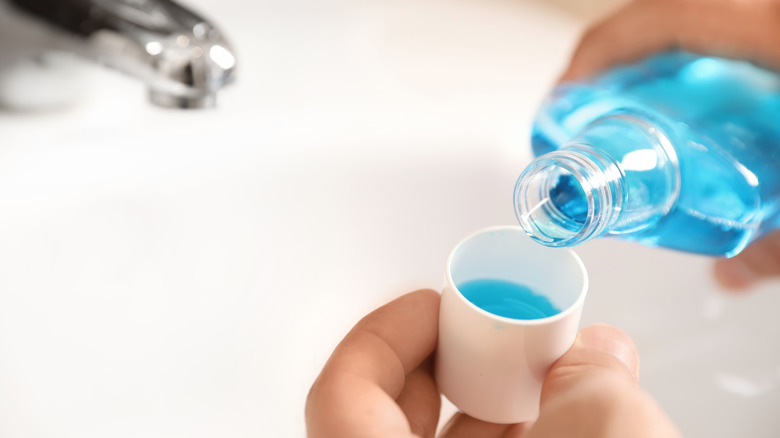Many people use mouthwash as a part of their dental hygiene routine. Mouthwash is a great way to keep your mouth clean and healthy, but it’s important to use it correctly. As it turns out, many experts are split on their professional opinions about the best time to use this product. According to Colgate, the Mayo Clinic suggests using mouthwash immediately after brushing and flossing your teeth, but the National Health Service (NHS) cautions against using mouthwash too soon after brushing as it can wash away the fluoride in your toothpaste. The American Dental Association, on the other hand, believes that you can use mouthwash at any time of the day depending on your personal preference.
Ultimately, the decision of when to use mouthwash is up to you and your dentist. They can help you determine what is best for you and your oral hygiene needs. Some types of mouthwash are meant to be used at certain times of the day, so be sure to check the package when determining when to use a product. If you have any concerns about your oral health, consult your dentist for their professional opinion.
The benefits of using mouthwash

There are many benefits to using mouthwash. Many people use this product to freshen their breath, which is one of its main uses. Some types of mouthwash do this with minty-fresh ingredients while others target bacteria in your mouth that cause bad breath (via the American Dental Association). Other types of mouthwash can reduce plaque and gingivitis. Plaque is a sticky film of bacteria that forms on your teeth that can harden into tartar if not removed. Gingivitis is inflammation of the gums caused by plaque.
Some mouthwashes contain whitening agents that can remove stains from your teeth and make them look brighter. While these products can be helpful when trying to achieve a beautiful smile, it is important not to use them too often as they can make your teeth more sensitive. Mouthwash can also be helpful in reducing the risk of cavities, as some types contain fluoride. Fluoride is a mineral that helps protect your teeth by making them more resistant to decay.
If you are looking for a mouthwash that will provide you with all of these benefits, be sure to ask your dentist or check the labels at your local drugstore. There are many different types of mouthwash available and not all of them are created equal. Be sure to select a product that contains fluoride if you are interested in cavity prevention and one that is alcohol-free if you have sensitive gums.
Dental hygiene mistakes to avoid
While using mouthwash regularly offers many benefits, going overboard with this product can cause some health issues. According to Coastal Dental Care, mouthwash should only be used no more than twice per day. If you use mouthwash more than this, you may experience negative effects like dryness in the mouth, inflamed gums, mouth sores, and issues with tasting food and beverages.
Mouthwash isn’t the only product that you can overuse when it comes to your dental hygiene. Brushing your teeth and flossing are both essential steps to keep your teeth and gums healthy, but there is such a thing as brushing and flossing too much. According to Everyday Health, many people brush their teeth very aggressively because they believe that it will make them cleaner. This actually wears down the enamel on your teeth and damages your gums.
Flossing more than once each day can also damage your gums (via University General Dentists). Most people press the floss too hard into their gums when they floss, which can cause bleeding and damage if you do it too frequently. Stick to brushing your teeth twice per day, flossing once per day, and using mouthwash once per day to avoid hurting your mouth more than helping it.